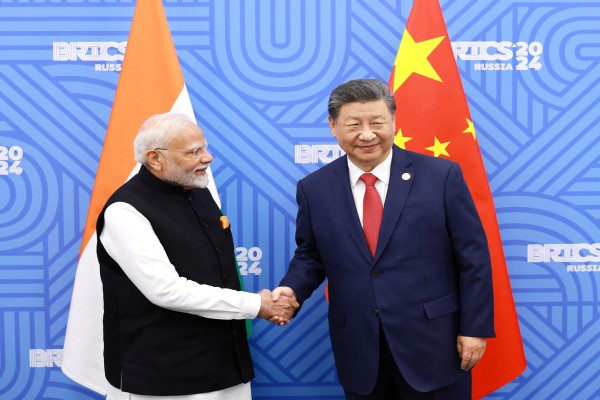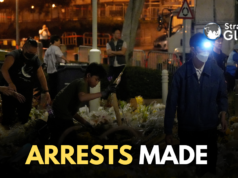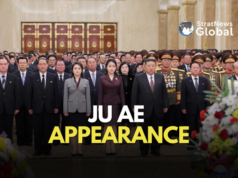
Prime Minister Narendra Modi and Chinese President Xi Jinping held their first formal bilateral meeting in nearly five years on the sidelines of the 16th BRICS Summit in Kazan, Russia.
The meeting, which comes after years of strained relations following the 2020 border clashes, focused on restoring peace and stability along the India-China border and rebuilding trust.
StratNewsGlobal Editor-in-Chief Nitin Gokhale, who is in Kazan to cover the BRICS summit, said that one of the key takeaways from the meeting was the decision to quickly revive the talks between Special Representatives on the boundary issue—India’s National Security Adviser Ajit Doval and China’s Foreign Minister Wang Yi.
“The two leaders (Modi and Xi) have agreed that constant, enhanced communications is a must, and directions have been given to revive the Special Representative level dialogue to start with,” Gokhale said. This would be the first meeting of the SRs since December 2019.
Briefing reporters on the meeting, foreign secretary Vikram Misri began by noting that this engagement follows the recent agreement between India and China on disengagement and de-escalation in the border areas.
Acknowledging the importance of ensuring that border-related disputes do not disrupt peace and tranquility, Prime Minister Modi emphasized the need for both nations to manage their differences effectively to avoid any further escalation
While expressing optimism that the agreement would lead to an improvement in ties, Misri said specifics about troop deployment or the timeline for complete disengagement remain under military assessment.
The resumption of the Kailash Mansarovar Yatra, a significant pilgrimage route for Indian citizens that was disrupted due to the border tensions, was also highlighted as a potential area for future discussions.
The two leaders stressed the importance of mutual respect and understanding each other’s core interests, and Prime Minister Modi reiterated that restoring peace along the border is essential for moving toward normalization of relations.
Given the Chinese penchant for disregarding bilateral agreements whenever it doesn’t suit their needs, New Delhi will be following former US President Ronald Reagan’s mantra very closely: “Trust but Verify.”
During their meeting, Modi expressed India’s full support for China’s upcoming presidency of the Shanghai Cooperation Organization (SCO) in 2025. This gesture was seen as a positive sign of India’s willingness to engage with China on regional platforms, despite the challenges in their bilateral relationship.
In addition to the bilateral discussions, Modi and Xi participated in the BRICS Summit, where leaders discussed multilateralism, global economic stability, and reforms to international institutions like the United Nations.
Modi used the platform to highlight India’s leadership in low-cost digital public infrastructure, including its contributions to fintech, healthcare, and the digital economy. He urged BRICS countries to collaborate on these fronts to benefit developing nations. He also called for greater cooperation in areas such as climate change, disaster resilience, and clean energy through initiatives like the International Solar Alliance.
The Kazan Declaration, adopted at the summit, reaffirmed BRICS’ commitment to reforms and to advancing the interests of developing nations, particularly in the Global South.
In a career spanning three decades and counting, Ramananda (Ram to his friends) has been the foreign editor of The Telegraph, Outlook Magazine and the New Indian Express. He helped set up rediff.com’s editorial operations in San Jose and New York, helmed sify.com, and was the founder editor of India.com.
His work has featured in national and international publications like the Al Jazeera Centre for Studies, Global Times and Ashahi Shimbun. But his one constant over all these years, he says, has been the attempt to understand rising India’s place in the world.
He can rustle up a mean salad, his oil-less pepper chicken is to die for, and all it takes is some beer and rhythm and blues to rock his soul.
Talk to him about foreign and strategic affairs, media, South Asia, China, and of course India.




